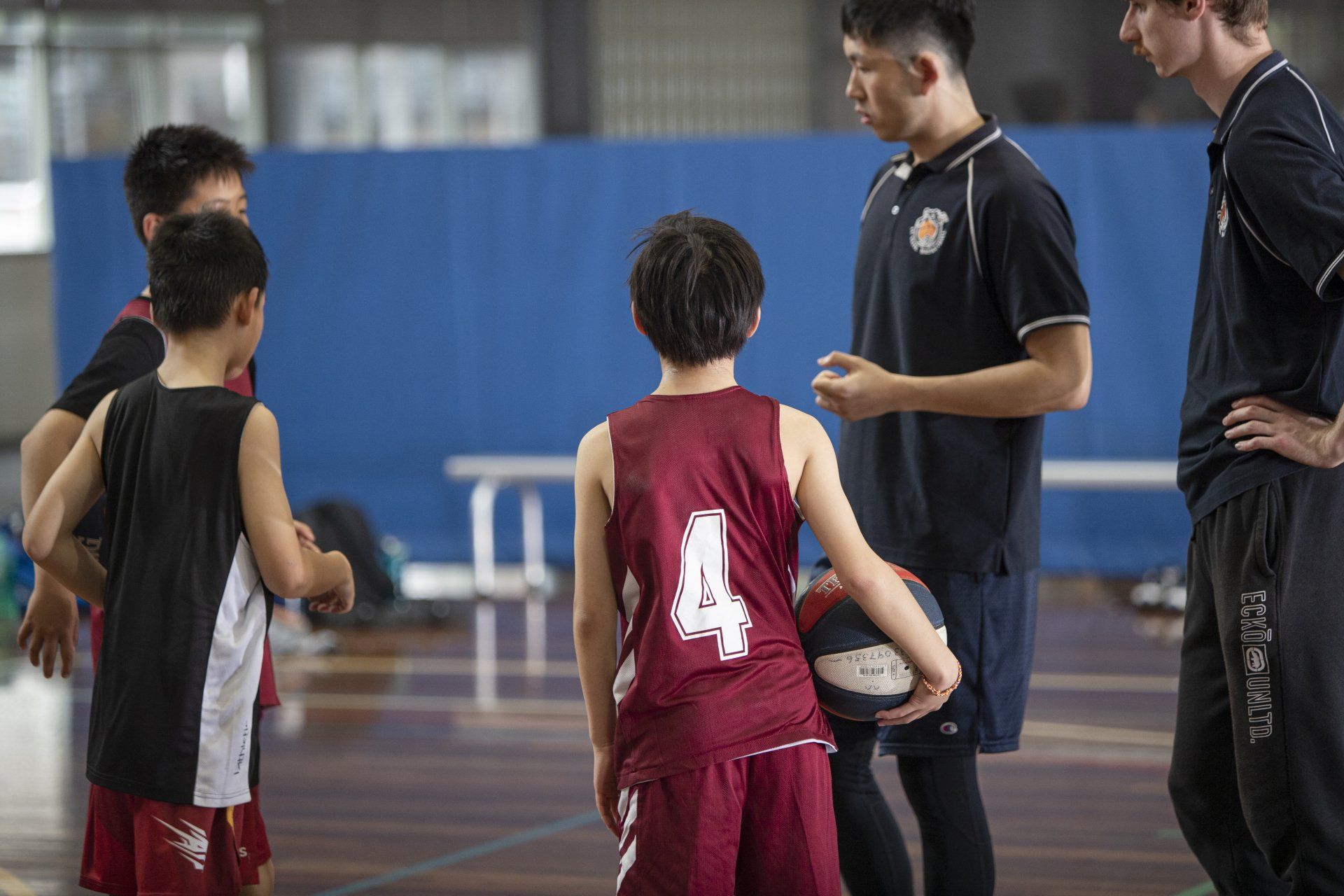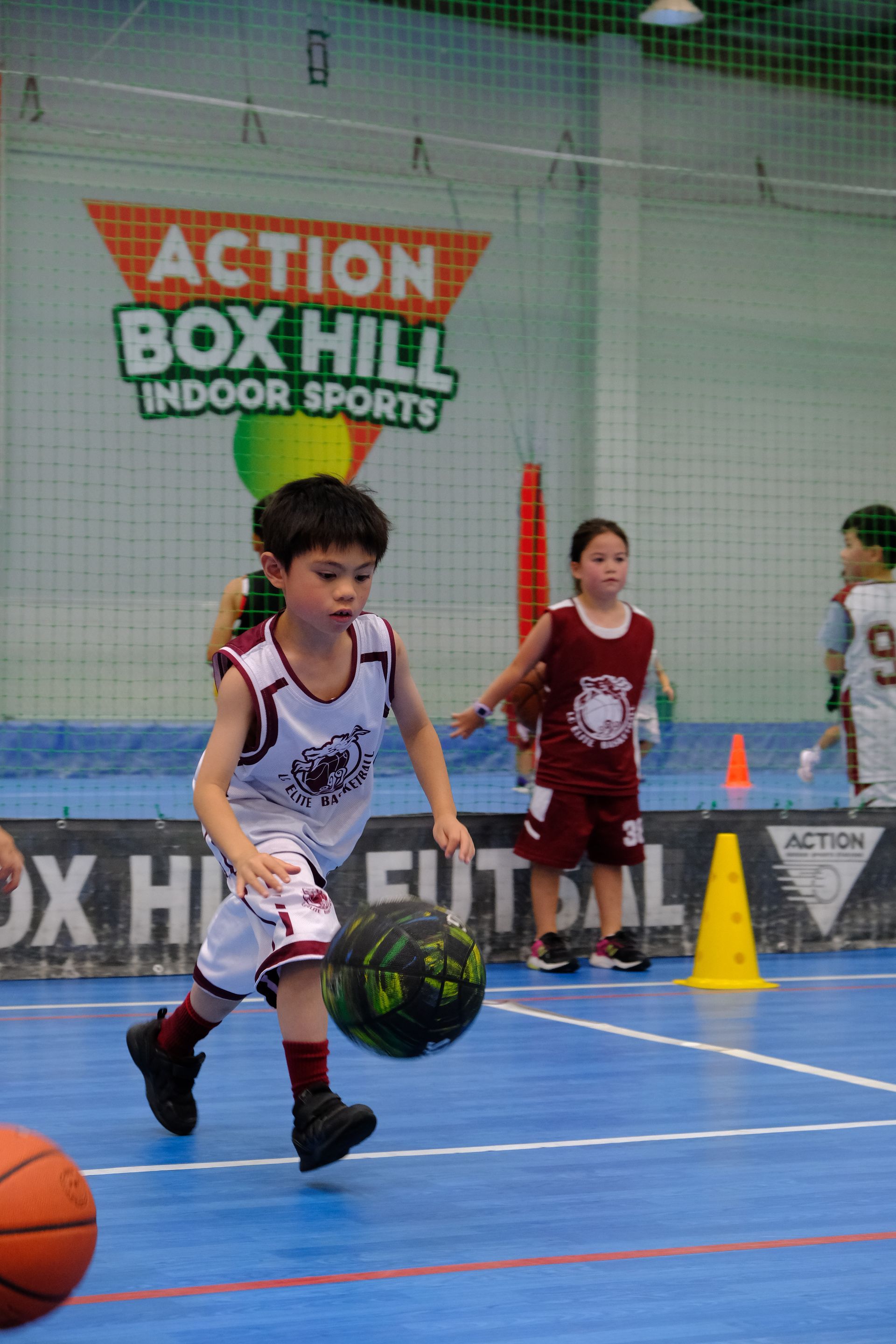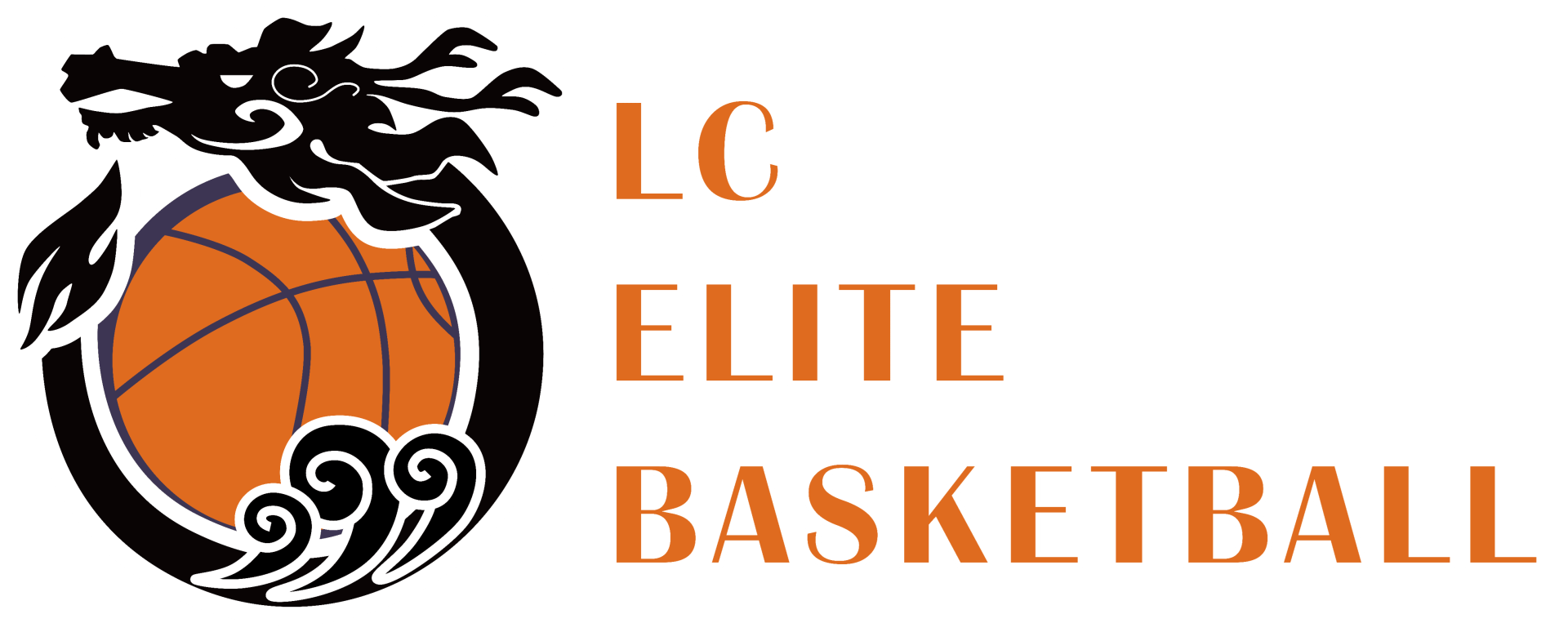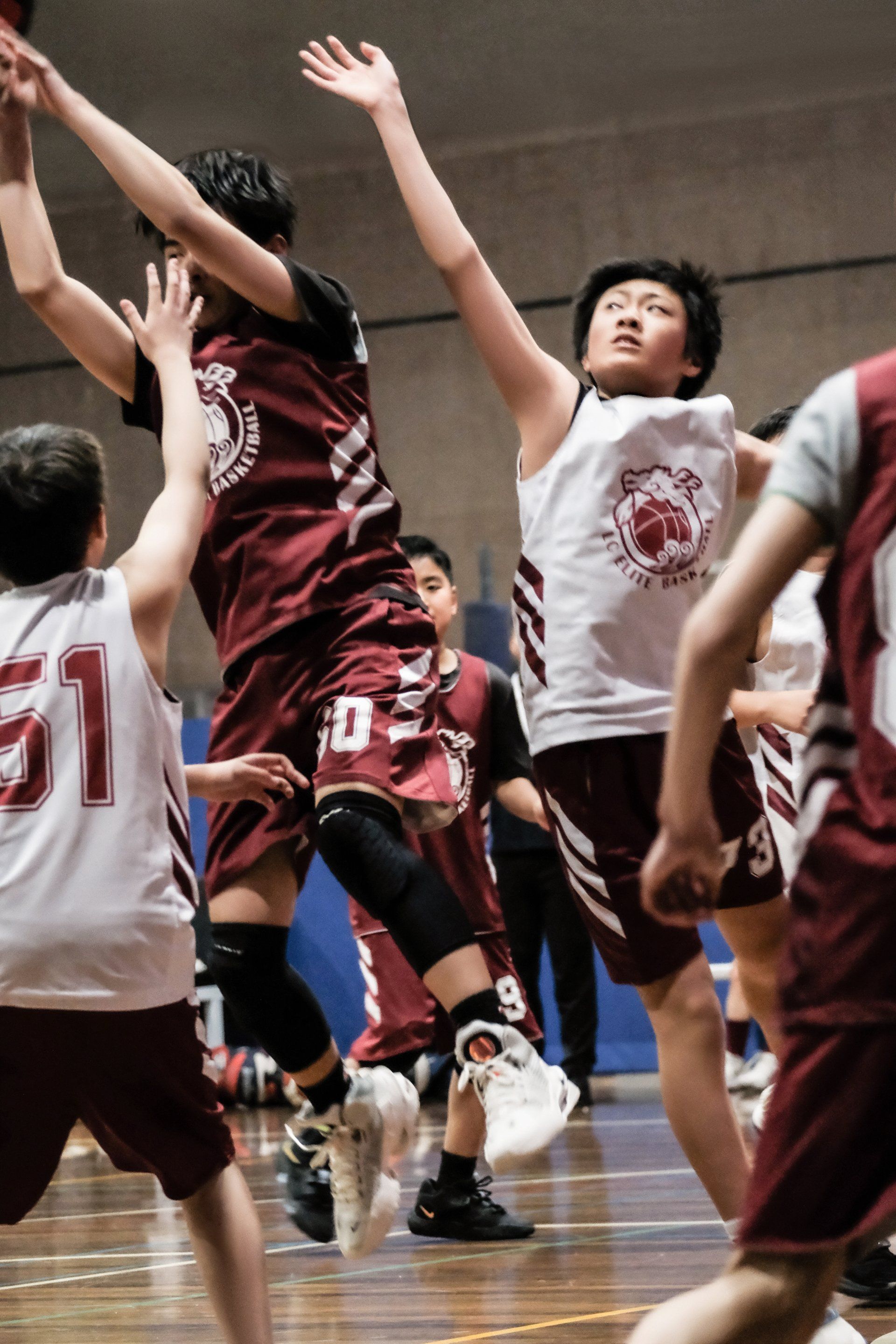How to Balance Academics and Basketball for Student-Athletes: A Winning Game Plan
Introduction: The Student-Athlete's Dilemma
Picture this: You're dribbling down the court, the crowd's roar filling your ears, and the game clock ticking away. But in the back of your mind, there's a nagging thought about that upcoming chemistry test. Sound familiar? If you're a student-athlete, especially in the world of basketball, you're probably nodding your head right now. Balancing academics and basketball is like trying to juggle flaming torches while riding a unicycle – challenging but not impossible with the right skills and mindset.
As a student-athlete in Melbourne or anywhere else, you're not just chasing your hoop dreams; you're also laying the foundation for your future beyond the court. But how do you give your all to both your studies and your game without dropping the ball in either arena? That's the million-dollar question we're here to answer.
In this guide, we'll explore the art of balancing academics and basketball, offering a playbook filled with practical strategies, expert tips, and insider knowledge. Whether you're a high school player dreaming of college scholarships or a college athlete aiming for academic excellence alongside your athletic pursuits, this article is your go-to resource for mastering the delicate balance between books and basketball.
The Importance of Balancing Academics and Basketball
Let's face it – as much as we'd love to spend all day perfecting our jump shot or mastering the perfect crossover, there's more to life than what happens on the court. Your academic performance is just as crucial as your athletic achievements, if not more so. But why is this balance so important?
First and foremost, your education is your safety net. While we all dream of making it to the big leagues, the reality is that only a small percentage of players will go pro. Your academic success opens doors to various career opportunities, ensuring you have options beyond basketball. Plus, many college scholarships require maintaining a certain GPA, so hitting the books is just as important as hitting those free throws.
Moreover, the skills you develop in managing both academics and basketball will serve you well throughout your life. Time management, discipline, and the ability to perform under pressure are all transferable skills that will benefit you in any future career path. It's not just about acing tests and winning games; it's about building a foundation for lifelong success.
Time Management Strategies for Student-Athletes
Now that we've established why balancing academics and basketball is crucial, let's talk about how to make it happen. Time management is the name of the game here, folks. It's like running a well-executed offence – every second counts, and you need to make the most of each possession.
- Create a Game Plan: Just as you wouldn't step onto the court without a strategy, don't tackle your week without a solid plan. Use a planner or a digital app to schedule your classes, basketball training, study sessions, and downtime. Seeing your week laid out visually can help you identify pockets of time you might not have realised you had.
- Prioritise Like a Pro: Not all tasks are created equal. Learn to distinguish between what's urgent and what's important. Is that big history paper due next week? That's your priority play. The latest basketball highlight reel on social media? Save it for your rest periods.
- Master the Art of the Quick Study Session: You don't always need hours of uninterrupted study time. Learn to make the most of short breaks between classes or during travel time to games. Flashcards, summary notes, or quick review sessions can be incredibly effective when done consistently.
- Utilise Technology: There are tons of apps designed to help with student-athlete time management. From homework trackers to focus timers, leverage technology to keep yourself on track and accountable.
- Learn to Say No: This might be the most challenging skill to master, but it's crucial. You can't do everything, and that's okay. Prioritise your commitments and don't be afraid to turn down invitations or extra activities that might derail your academic or athletic goals.
Remember, effective time management isn't about doing more; it's about doing what matters most. By implementing these strategies, you'll find yourself not just surviving but thriving in both your academic and basketball pursuits.
Effective Study Techniques for Basketball Players
Now, let's talk about hitting those books with the same intensity you bring to the court. As a basketball player, you're already equipped with some killer skills that can translate into academic success. It's time to apply that same focus, discipline, and strategic thinking to your studies.
- The Pomodoro Technique: Think of this as interval training for your brain. Study intensely for 25 minutes, then take a 5-minute break. After four "quarters" of this, take a longer break. It's like running drills with recovery periods – it keeps your mind fresh and focused.
- Visual Learning: Many basketball players are visual learners. Use this to your advantage by creating mind maps, diagrams, or even playbook-style notes for your subjects. Visualise concepts as you would visualise plays on the court.
- Group Study Sessions: Just like team practice, group study can be incredibly effective. Form study groups with fellow student-athletes who understand your schedule and challenges. Quiz each other, explain concepts and motivate each other to excel.
- Active Recall: Instead of passively reading your notes, actively quiz yourself. It's like running through plays in your head before a game – the more you practice recalling information, the easier it becomes to access during exams.
- Use Analogies: Connect academic concepts to basketball whenever possible—understanding projectile motion in physics? Think about the arc of your jump shot. Studying historical strategies? Compare them to famous basketball plays.
By applying these study techniques, you'll find that academic success becomes more achievable and even enjoyable. Remember, just as you wouldn't expect to master a new basketball skill overnight, effective studying takes practice and persistence.
Leveraging Basketball Skills in Academic Success
You might not realise it, but many of the skills you've honed on the basketball court can be powerful assets in your academic life. Let's break down how you can leverage your athletic mindset for classroom success:
- Discipline and Routine: The discipline required to stick to a rigorous basketball training schedule can be applied to your study habits. Set a consistent study routine and stick to it with the same dedication you bring to your workouts.
- Goal Setting: In basketball, you set both short-term and long-term goals. Apply this same principle to your academics. Break down big assignments into smaller, manageable tasks, just as you'd break down game strategies into specific plays.
- Teamwork: Your experience working with teammates translates well to group projects. Take the lead in organising study groups or collaborative assignments, using your team-building skills to foster a productive academic environment.
- Resilience: Basketball has taught you how to bounce back from losses and learn from mistakes. Apply this resilience to your studies. If you perform poorly on a test, analyse what went wrong and use that knowledge to improve next time.
- Focus Under Pressure: The ability to stay calm and focused during high-pressure game situations is invaluable during exams. Use the same breathing techniques and mental focus strategies you employ on the court when tackling challenging academic tasks.
By recognising and utilising these transferable skills, you're not just a student who plays basketball or a basketball player who studies – you're a well-rounded individual using all your abilities to succeed in every aspect of your life.
The Role of Coaches and Parents in Supporting Student-Athletes
Balancing academics and basketball isn't a solo game – it requires a strong support system. Coaches and parents play crucial roles in helping student-athletes succeed both on and off the court. Here's how they can contribute to your success:
Coaches:
- Emphasise Academic Importance: Great coaches understand that their players' success in the classroom is just as important as their performance on the court. They should regularly check in on academic progress and offer support or resources when needed.
- Flexible Practice Schedules: During high-stress academic periods like exam weeks, coaches can adjust practice schedules to allow more study time. This shows players that their academic commitments are respected and valued.
- Academic Mentoring: Many coaches have experience as student-athletes themselves. They can share valuable insights and strategies for balancing academics and basketball based on their own experiences.
Parents:
- Create a Supportive Environment: Parents can help by ensuring there's a quiet, comfortable space at home for studying and by being understanding of the unique pressures student-athletes face.
- Help with Time Management: Parents can assist in creating and maintaining schedules, reminding their children of upcoming deadlines, and helping to prioritise tasks.
- Communicate with Teachers and Coaches: Open lines of communication between parents, teachers, and coaches can ensure everyone is on the same page regarding the student-athlete's progress and needs.
Remember, your success as a student-athlete is a team effort. Don't hesitate to lean on your support system when you need it.
Elite Basketball: Empowering Student-Athletes to Excel
At Elite Basketball in Melbourne, we understand the unique challenges faced by student-athletes. Our basketball training programs are designed not just to improve your game but to complement and enhance your academic pursuits as well. Here's how we support our student-athletes:
- Flexible Training Schedules: We offer a variety of training times to accommodate your academic commitments, ensuring you can get quality basketball training without sacrificing your studies.
- Holistic Development: Our coaches focus on developing not just basketball skills but also life skills like time management, goal setting, and mental resilience – all crucial for academic success.
- Academic Support: We provide resources and guidance on effective study techniques specifically tailored for athletes, helping you maximise your academic potential.
- Mentorship Programs: Connect with successful student-athletes who have navigated the balance between academics and basketball, gaining valuable insights and advice.
- College Preparation: For those aspiring to play college basketball, we offer guidance on NCAA requirements, scholarship opportunities, and how to market yourself to college recruiters while maintaining strong academics.
At Elite Basketball, we believe that success on the court and in the classroom goes hand in hand. Our programs are designed to help you achieve your full potential in both areas, setting you up for a bright future, whether that's in professional basketball or any other career path you choose.
Conclusion: Achieving the Perfect Balance
Balancing academics and basketball is no easy feat, but with the right strategies, support, and mindset, it's absolutely achievable. Remember, your success as a student-athlete isn't just measured by your points per game or your GPA – it's about how you grow, learn, and prepare for your future.
By implementing effective time management techniques, leveraging your athletic skills in your studies, and utilising the support of coaches, parents, and programs like Elite Basketball, you're setting yourself up for success both on and off the court.
So, the next time you find yourself torn between hitting the books and hitting the court, remember that both are integral parts of your journey as a student-athlete. Embrace the challenge, stay focused on your goals, and don't be afraid to seek help when you need it.
Are you ready to take your game to the next level, both in basketball and academics? Visit Elite Basketball's website to learn more about our programs and how we can support your journey as a student-athlete. Together, we can help you achieve the perfect balance and set you on the path to a successful future.
Disclaimer: This blog article serves informational purposes only and does not replace professional guidance. For personalized training programs and advice, consult with qualified coaches or trainers at LC Elite basketball Academy


Crafted with ![]() by
CloudKrafts
by
CloudKrafts

